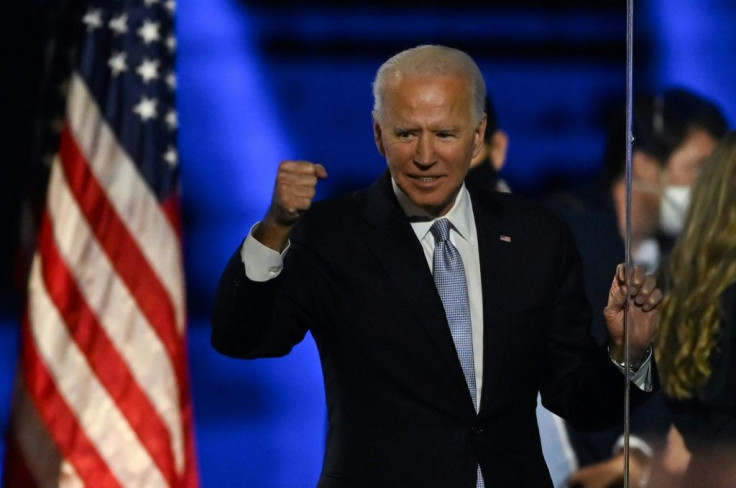What Will Joe Biden Do To ‘Tariff Man’ Trade Policies?
KEY POINTS
- The lack of a Blue Wave ties Biden’s hands to some extent
- Biden’s stated economic plan focuses heavily in domestic issues
- German an early voice of support a change in US trade policy
President-elect Joe Biden could claim an early victory by taking a closer look at Trump’s trade policies once sworn into office in January, economists said.
Biden, who was announced as the 2020 election winner on Saturday, will be sworn in as president on Jan. 20. Pre-election surveys suggested Biden and fellow Democrats would sweep the map, holding a strong majority in the House of Representatives and taking control of the Senate. Instead, Democrats saw their majority in the House diminish and it's unclear if they can claim the Senate.
Biden may enter the White House without a clear path to achieving his campaign pledges. But on trade, a president enjoys broad authority over how to negotiate trade deals and implement or roll back tariffs without support from the legislative branch.
“It’s really going to be one of the few policy areas where Biden can show results and do so unilaterally,” Scott Lincicome, a senior fellow at the Cato Institute and a longtime trade lawyer, told the Wall Street Journal. “Because some of his signature policies are dead-on-arrival, he’s going to need to show progress elsewhere. That’s where trade and immigration will play a pretty prominent role.”
Biden and Vice President-elect Kamala Harris outlined racial equality, climate change, overcoming the pandemic and supporting economic recovery as their goals. Their economic plans are short on trade specifics, focusing instead on domestic issues such as a pandemic stimulus package, a boost to manufacturing and investing in “modern, sustainable infrastructure and sustainable engines of growth.”
On foreign affairs, Biden has spoken of the need to rebuild the U.S. reputation on the global stage. That means taking a hard look at the policies that earned Trump the self-prescribed nickname of “Tariff Man.”
“Some tariffs are a valid way to enforce trade that’s violating agreements,” AFL-CIO President Richard Trumka said. “But a shotgun approach with tariffs is much ado and not very effective.”
The damage to international relations was apparent when the European Union expressed regret on Monday for taking retaliatory action on the U.S. for trillion-dollar tariffs related to airplane manufacturers.
German Economy Minister Peter Altmaier has said there was hope for change.
“There are great expectations and the hope that the American presidential elections will lead to a return to multilateral engagement in international trade and that it will be possible to overcome past conflicts,” Altmaier said.
Trump has used national security as grounds to implement many of his tariffs. For the most part, tariffs are paid for by U.S. taxpayers. A 2018 study from the non-partisan Tax Foundation found Trump’s tariffs were “regressive, placing a higher burden on lower-income households.”

© Copyright IBTimes 2025. All rights reserved.





















